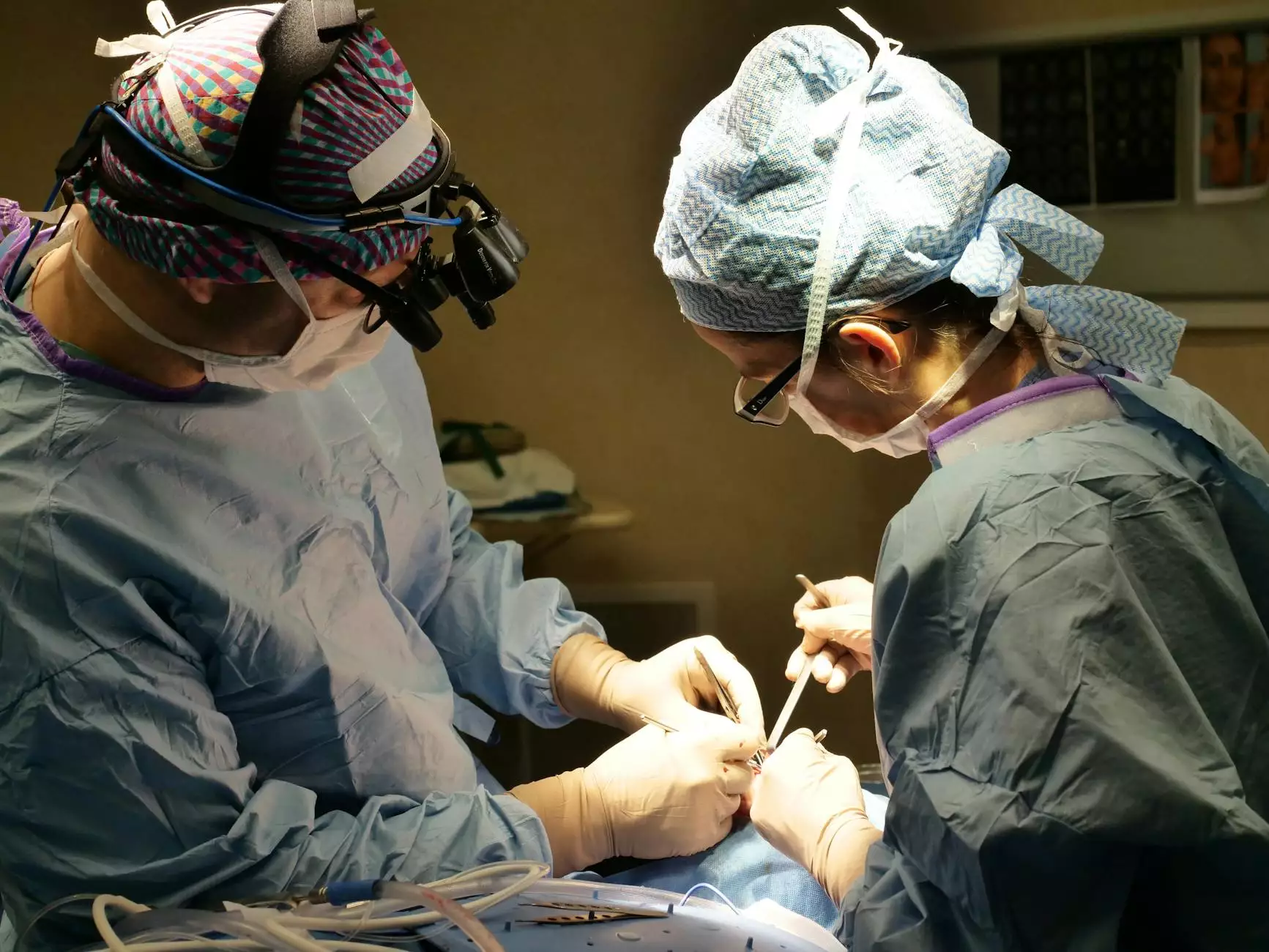Understanding Colon Cancer and the Role of Specialists

Colon cancer remains one of the most prevalent types of cancer globally, with millions affected each year. However, the advancements in medical science and the expertise of colon cancer specialists have significantly improved diagnosis and treatment outcomes. In this article, we will delve into the multifaceted world of colon cancer, the importance of seeking specialized care, and the latest innovations in treatment and prevention.
What is Colon Cancer?
Colon cancer, also known as colorectal cancer, begins in the large intestine (colon) or the rectum. It typically starts as small, benign clumps of cells called polyps that can develop into cancer over time. Understanding the nature of this disease is crucial for effective prevention and early diagnosis.
Symptoms of Colon Cancer
Recognizing the symptoms of colon cancer is essential for early intervention. Common signs include:
- Changes in bowel habits (diarrhea or constipation)
- Blood in stool or rectal bleeding
- Unexplained weight loss
- Abdominal discomfort or cramps
- Fatigue and weakness
If you experience any of these symptoms, it is important to consult a healthcare professional promptly, preferably a colon cancer specialist.
The Importance of Colon Cancer Specialists
The treatment of colon cancer requires a multidisciplinary approach, where colon cancer specialists play a pivotal role. These professionals are trained in the diagnosis and treatment of colorectal diseases and understand the complexities involved in managing this cancer effectively.
What Do Colon Cancer Specialists Do?
Colon cancer specialists include surgical oncologists, medical oncologists, radiation oncologists, and gastroenterologists. Their responsibilities encompass:
- Detailed assessments and diagnostic evaluations
- Personalized treatment plans based on individual patient needs
- Monitoring treatment efficacy and adjusting approaches as necessary
- Providing support in managing symptoms and improving quality of life
Working closely with other healthcare professionals, these specialists ensure a comprehensive treatment experience. Their expertise is critical to navigating the complexities of colon cancer management.
Diagnosis of Colon Cancer
Early diagnosis is key to improving survival rates. Colon cancer specialists often utilize various diagnostic methods to confirm the presence of cancer:
- Colonoscopy: A procedure that uses a thin, flexible tube with a camera to view the entire colon and rectum.
- Biopsy: During a colonoscopy, a small tissue sample may be taken for laboratory analysis.
- Imaging tests: CT scans, MRIs, and ultrasounds help determine the extent of cancer spread.
- Genetic testing: Assessing genetic mutations can provide insights into hereditary cancer risks.
Each diagnostic technique plays a significant role in creating a clear picture of the patient’s condition, allowing specialists to formulate effective treatment protocols.
Innovative Treatment Options
Advancements in medical technology have ushered in new treatment options for colon cancer, revolutionizing patient care. Colon cancer specialists must stay abreast of these innovations to offer the best treatments available.
1. Surgical Interventions
Surgery is the primary treatment for many cases of colon cancer. Depending on the stage, the type of surgery may include:
- Polypectomy: Removal of polyps during a colonoscopy.
- Segmental resection: Removing the affected section of the colon, along with nearby lymph nodes.
- Colostomy: In more advanced cases, creating an opening in the abdomen for waste removal.
Skilled colon cancer specialists perform these surgeries laparoscopically whenever possible, which reduces recovery times and minimizes complications.
2. Chemotherapy
Chemotherapy utilizes powerful drugs to target and kill cancer cells. It is often employed after surgery to eliminate any remaining cancerous cells or before surgery to shrink tumors. Colon cancer specialists customize chemotherapy regimens based on individual patient factors, ensuring optimal effectiveness.
3. Radiation Therapy
Radiation therapy uses high-energy rays to destroy cancer cells. It can be particularly beneficial for patients whose cancer has spread beyond the colon. Many colon cancer specialists collaborate with radiation oncologists to devise a comprehensive treatment plan that incorporates this modality.
4. Targeted Therapy and Immunotherapy
Recent advancements have led to the introduction of targeted therapies and immunotherapy, which are designed to attack specific cancer mutations or enhance the body's immune response against cancer. These options can be viable alternatives or complements to traditional treatment modalities, and they require specialized knowledge to manage effectively.
Supportive Care and Quality of Life
A crucial aspect of treatment provided by colon cancer specialists involves supportive care. Managing side effects, nutritional needs, and emotional support is essential in enhancing the overall quality of life for patients. Support services may include:
- Nutritional counseling to maintain a healthy diet during treatment
- Pain management strategies to alleviate discomfort
- Support groups for emotional and psychological assistance
- Rehabilitation programs to aid recovery post-surgery
Working closely with a multidisciplinary team ensures that patients' physical, emotional, and psychological needs are met throughout their treatment journey.
Preventive Measures and Screening
Prevention plays a crucial role in reducing colon cancer incidence. With expertise in colorectal health, colon cancer specialists emphasize the importance of screening and lifestyle choices for risk mitigation.
1. Regular Screening
Individuals over 45, or those with a family history of colorectal cancer, should adhere to regular screening schedules, including:
- Colonoscopy every 10 years
- Fecal immunochemical tests (FIT) annually
- CT colonography every 5 years
2. Lifestyle Modifications
In addition to screening, adopting healthy lifestyle practices can significantly reduce the risk of colon cancer:
- Maintain a balanced diet: Focus on fruits, vegetables, whole grains, and lean proteins.
- Stay physically active: Regular exercise can help maintain a healthy weight.
- Avoid tobacco: Quitting smoking is one of the best ways to reduce cancer risks.
- Limit alcohol: Keeping alcohol consumption to a minimum can decrease the likelihood of developing cancer.
Conclusion
In conclusion, the journey through colon cancer can be daunting, but with the expertise of colon cancer specialists, patients can access comprehensive care. From early diagnosis through advanced treatment options and supportive care, these experts make a significant impact on the lives of those affected by colon cancer. The emphasis on prevention and individualized treatment plans further exemplifies their commitment to combating this disease.
For colon cancer specialists and the ongoing advancements in treatment, oncological surgery offers hope and improved outcomes for countless patients globally. If you're concerned about colon health, do not hesitate to reach out to a qualified specialist for guidance, support, and intervention to ensure a healthier future.









